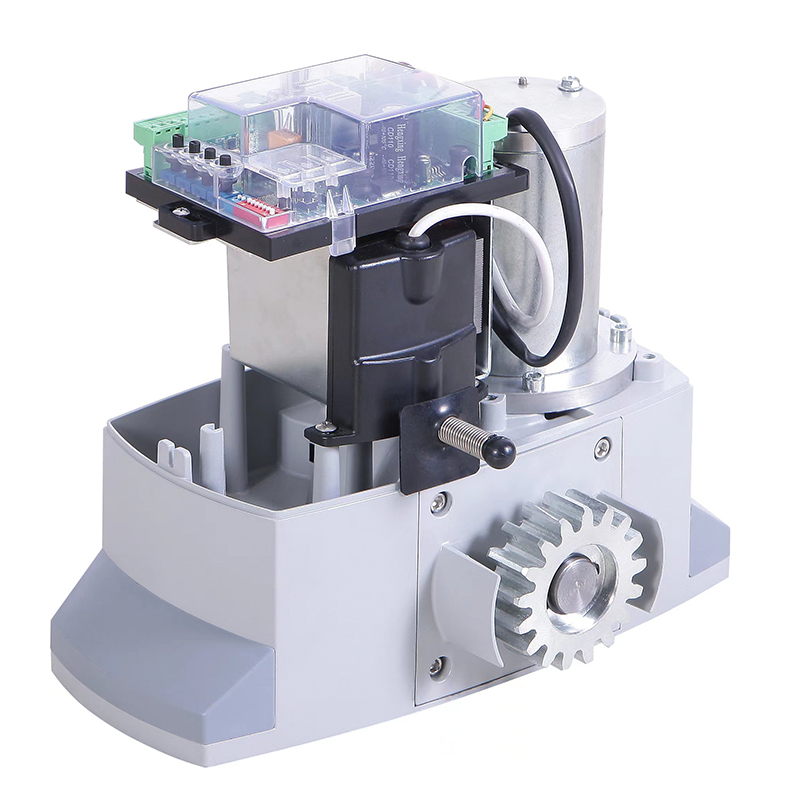Gate access control systems are essential components of security infrastructure in a wide range of industries, from residential communities to commercial complexes and industrial facilities. These systems not only regulate entry and exit but also enhance safety, convenience, and operational efficiency. Customization plays a crucial role in ensuring that gate access control systems meet the specific needs and requirements of different industries. In this article, we explore how gate access control systems can be tailored to suit various industry needs.

1. Residential Communities
In residential communities such as gated neighborhoods, apartment complexes, and condominiums, gate access control systems prioritize security and convenience for residents while managing visitor access efficiently.
Remote Access: Residents often require remote access capabilities through mobile apps or key fobs for seamless entry and exit.
Visitor Management: Integrated visitor management systems facilitate pre-authorization of guests, visitor logging, and temporary access permissions.
Intercom Integration: Intercom systems allow residents to communicate with visitors and grant access remotely, enhancing security and convenience.
2. Commercial Properties
Gate access control systems in commercial properties, including office buildings, retail centers, and business parks, focus on managing employee access, monitoring deliveries, and ensuring smooth traffic flow.
Employee Access Control: Systems can be customized to support various access levels, time restrictions, and permissions based on employee roles and responsibilities.
Integration with Time and Attendance Systems: Integration with time and attendance systems allows for accurate tracking of employee arrivals and departures, facilitating payroll management.
License Plate Recognition (LPR): LPR technology enables automatic recognition and logging of vehicle license plates, streamlining entry for authorized vehicles and enhancing security.
3. Industrial Facilities
In industrial settings such as manufacturing plants, warehouses, and distribution centers, gate access control systems prioritize safety, security, and regulatory compliance.
Vehicle Screening: Advanced vehicle screening measures, including under-vehicle scanning and cargo inspection, help prevent unauthorized access and enhance perimeter security.
Integration with Industrial Automation Systems: Integration with industrial automation systems allows for seamless access control integration with production workflows, ensuring only authorized personnel access restricted areas.
Biometric Authentication: Biometric authentication methods such as fingerprint or facial recognition provide an additional layer of security for high-risk areas.
4. Educational Institutions
Gate access control systems in educational institutions such as schools, colleges, and universities focus on safeguarding students, staff, and campus facilities while managing visitor access effectively.
Student Safety: Systems can be customized to support emergency lockdown procedures, ensuring rapid response to security threats.
Visitor Management for Events: During events or parent visits, temporary access permissions can be easily granted and monitored to ensure campus security and safety.
Integration with Student Information Systems: Integration with student information systems facilitates seamless management of access permissions based on student enrollment status and schedules.
5. Healthcare Facilities
In healthcare environments such as hospitals, clinics, and medical centers, gate access control systems prioritize patient privacy, staff safety, and regulatory compliance.
Patient Privacy: Access control systems help protect patient privacy by restricting unauthorized access to sensitive areas such as patient rooms, medical records, and pharmacies.
Staff Safety: Panic buttons and duress alarms integrated with access control systems enable staff to summon assistance quickly in emergency situations.
Compliance with HIPAA Regulations: Systems can be customized to ensure compliance with Health Insurance Portability and Accountability Act (HIPAA) regulations regarding patient data security and confidentiality.
Conclusion
Customizing gate access control systems to meet the specific needs of different industries is essential for optimizing security, efficiency, and convenience. By tailoring access control solutions to address industry-specific challenges and requirements, organizations can enhance safety, streamline operations, and achieve regulatory compliance. Whether in residential communities, commercial properties, industrial facilities, educational institutions, or healthcare settings, customized gate access control systems play a vital role in safeguarding assets, personnel, and information while facilitating smooth and secure access management.